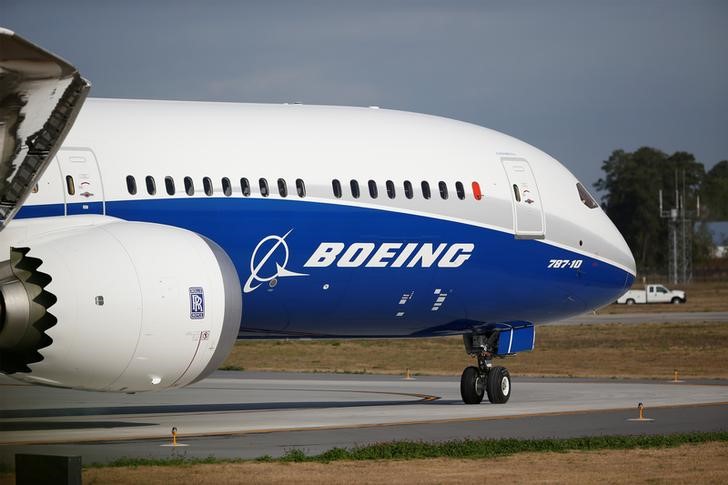WASHINGTON - Boeing (NYSE:BA)'s extensive commercial airplane offerings, including iconic models like the Boeing 707, have not only transformed commercial air travel but also given rise to a broad range of specialized military aircraft. These adaptations serve various defense roles from surveillance to in-flight refueling, highlighting the versatility of Boeing's aircraft designs.
The Boeing 707, a trailblazer in the jetliner industry, has been modified into the E-3 Sentry, an airborne early warning aircraft recognized by its distinctive radar dome. The Boeing 727, known for its trijet configuration, has a unique military variant, the C-22, which is utilized by the United States Air Force (USAF) for transport purposes.
Boeing's best-selling 737 model has also been transformed for military use. The T-43 was equipped with sextant navigation aids to train navigators. The C-40 Clipper performs dual passenger and cargo transport roles. Notably, the P-8 Poseidon variant serves as a maritime patrol aircraft armed with anti-ship missiles.
One of the most famous Boeing adaptations is the VC-25, better known as 'Air Force One'. This bespoke version of Boeing's jumbo jetliner is currently transitioning to an advanced -8 model, which will continue to serve as the airborne command center for the President of the United States.
International forces also benefit from Boeing's military conversions. Japan's Self Defense Forces operate a specialized surveillance platform known as the E-767. In addition, the USAF relies on KC-46 Pegasus tankers for essential aerial refueling missions. Both of these aircraft are derivatives of Boeing’s widebody series, demonstrating the global reach and strategic importance of these military adaptations.
InvestingPro Insights
Boeing, a prominent player in the Aerospace & Defense industry, has shown accelerating revenue growth, with a significant 23.34% increase over the last twelve months as of Q3 2023. Despite the company's strong market position and increasing revenues, it's important to note that Boeing has not been profitable over the last twelve months. This is reflected in the negative P/E ratio of -44.26, indicating the company is currently not generating earnings.
InvestingPro data also reveals that Boeing's gross profit margin stands at 11.44%, suggesting relatively weak gross profit margins. In addition, the company's stock appears to be in overbought territory, as indicated by the Relative Strength Index (RSI), a technical analysis tool used to measure the speed and change of price movements.
Nevertheless, Boeing's stock has seen a strong return over the last month, with a total price return of 13.81%. Despite the challenges, the company's strategic importance in the military sector and its resilient commercial airplane offerings present potential for future growth.
InvestingPro offers additional insights and tips for those interested in further analysis. Currently, InvestingPro is running a special Black Friday sale offering up to a 55% discount on subscriptions. This includes access to a vast array of tips, with 10 additional tips available for Boeing alone.
This article was generated with the support of AI and reviewed by an editor. For more information see our T&C.
